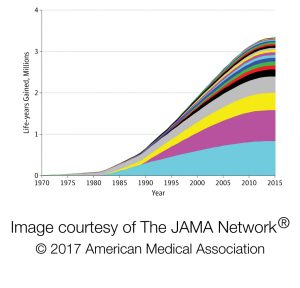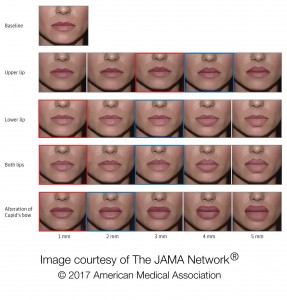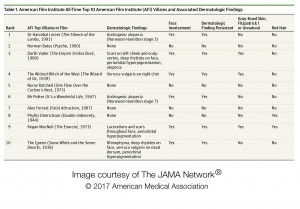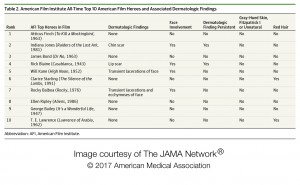EMBARGOED FOR RELEASE: 2:30 P.M. (ET), SATURDAY, JUNE 10, 2017
Media Advisory: To contact authors Katrina E. Donahue, M.D., M.P.H., and Laura A. Young, M.D., Ph.D., email Mark Derewicz at mark.derewicz@unchealth.unc.edu.
Video Content: There is a JAMA Report video for this study. It is available under embargo at this link, and includes broadcast-quality downloadable video files, B-roll, scripts and other images. Please email mediarelations@jamanetwork.org with any questions.
Embed the JAMA Report video: Copy and paste the link below to embed the JAMA Report video on your website.
Related material: The Editor’s Note, “The Need to Test Strategies Based on Common Sense,” by Elaine C. Khoong, M.D., M.S., of the University of California, San Francisco, and Joseph S. Ross, M.D., M.H.S., of the Yale University School of Medicine, New Haven, Conn., also is available on the For The Media website.
To place an electronic embedded link in your story: Links will be live at the embargo time: http://jamanetwork.com/journals/jamainternalmedicine/fullarticle/10.1001/jamainternmed.2017.1233
JAMA Internal Medicine
Self-monitoring of blood glucose levels in patients with type 2 diabetes who are not treated with insulin did not improve glycemic control or health-related quality of life after one year in a randomized trial, results that suggest self-monitoring should not be routine in these patients, according to a new study published by JAMA Internal Medicine. The study is being presented at the American Diabetes Association 77th Scientific Sessions.
Many patients with type 2 diabetes not treated with insulin regularly perform self-monitoring of blood glucose (SMBG), although the value of that practice has been debated.
Katrina E. Donahue, M.D., M.P.H., and Laura A. Young, M.D., Ph.D., of the University of North Carolina at Chapel Hill, and coauthors conducted a trial in 15 primary care practices in North Carolina with 450 patients with non-insulin-treated type 2 diabetes. The patients were an average of 61 years old, had had diabetes for an average of eight years, and 75 percent were performing SMBG at baseline.
The patients were assigned to one of three groups: those who performed no SMBG, those who performed once-daily SMBG, and those who performed once-daily SMBG but received enhanced feedback messages delivered through their blood glucose meters.
The study measured hemoglobin A1c levels (a measure of longer-term blood sugar control) across all three groups and health-related quality of life after one year.
According to the results, there were no differences in glycemic control or health-related quality of life after one year between patients who performed SMBG compared with those who didn’t.
Attrition in the SMBG monitoring groups could explain why some improvements were initially seen in hemoglobin A1c levels in the early months that weren’t significant at 12 months, according to the study. The study also did not determine the effectiveness of SMBG in certain clinical situations, such as when a new medication is started or when a dose is changed.
The authors warn the results do not apply to patients with diabetes treated with insulin.
“Based on these findings, patients and clinicians should engage in dialogue regarding SMBG with the current evidence suggesting that SMBG should not be routine for most patients with non-insulin-treated T2DM [type 2 diabetes mellitus],” the article concludes.
For more details and to read the full study, please visit the For The Media website.
(doi:10.1001/jamainternmed.2017.1233)
Editor’s Note: The article contains conflict of interest and funding/support disclosures. Please see the article for more information, including other authors, author contributions and affiliations, financial disclosures, funding and support, etc.
# # #
Embed the JAMA Report video: Copy and paste the link below to embed the related JAMA Report video on your website.
For more information, contact JAMA Network Media Relations at 312-464-JAMA (5262) or email mediarelations@jamanetwork.org.






